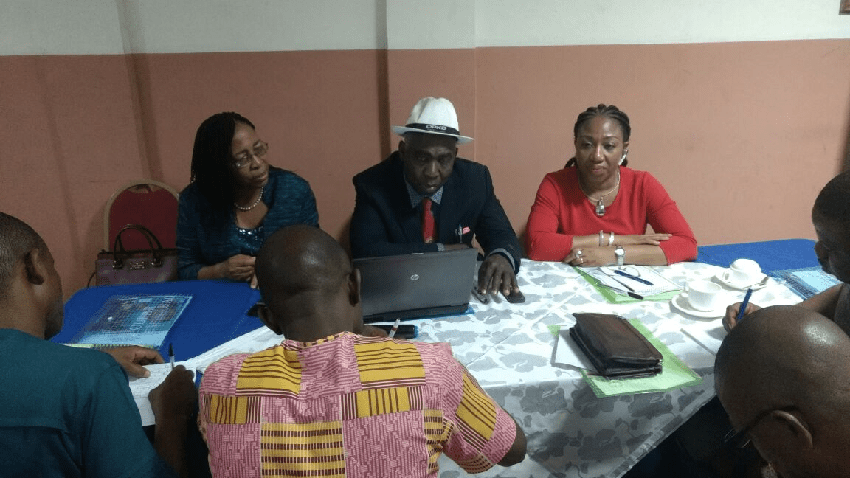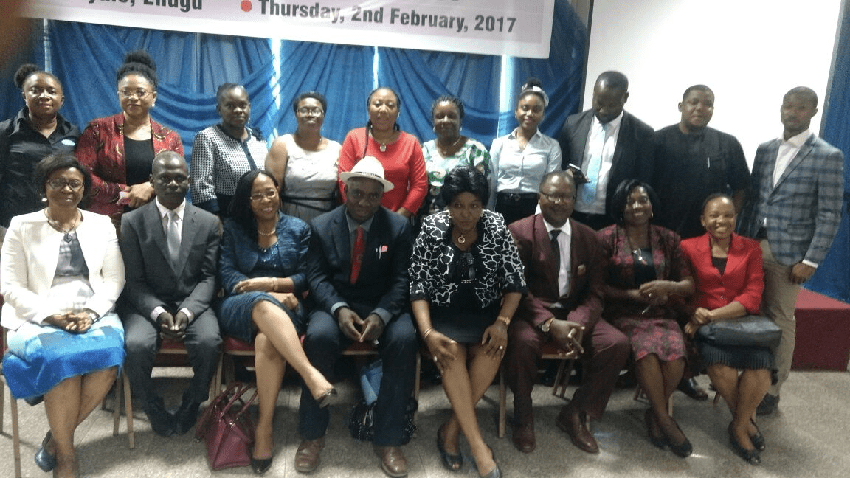The Ophthalmological Society of Nigeria (OSN) and the South East Ophthalmologist’s Forum (SEOF) in partnership with Pfizer have raised the alarm over the scourge of eye threatening disease- Glaucoma in the five South Eastern states of Nigeria.
Rising from a one- day symposium on the effect of the dreaded eye ailment in Enugu, the experts unanimously asserted that unless urgent steps are taken by policymakers to stem the tide, an appreciable percentage of residents of the affected states in the zone might go blind in no distant time.
The conveners explained that their fears were informed by the outcome of a research conducted by the eye care specialists in the country which showed that the South East has the highest prevalence of severe visual impairments of people over 40 years, with two per cent of residents of the zone already down with the disease.

Interestingly, specialists from all the specialist hospitals in Abia, Anambra, Enugu, Ebonyi and Imo states converged in Enugu state for a one-day brainstorming session on how to find solution to the problem.
The forum also planned new strategies and would commence fresh research on why the zone is the worst hit compared to other zones of the country.
The Director of Corporate Affairs Pfizer, Margaret Olele, intimated the audience on how Pfizer is committed to contributing positively to patient care in our communities with relevant stakeholders to reduce the burden of Glaucoma. The Glaucoma Symposium was designed to update healthcare professionals on the latest advances in medical and surgical management of Glaucoma.It highlights insights in Glaucoma management, medicals, surgical techniques and the burden of Glaucoma in Sub- Saharan Africa and Nigeria.
Addressing newsmen as the session progressed, the chairperson of SEOF, Professor Rich Umeh stated that the aggressive approach had become imperative in the war against Glaucoma. “This is where the media, church and community groups come in. Everybody has to join this campaign to stem the tide”.
Also, the National President of the Ophthalmological Society of Nigeria, Prof. Sebastine Nwosu and the facilitator of the forum, Dr. Nkiru Akaraiwe said the challenge had become worrisome to them. Prof. Sebastine Nwosu urged persons whose relatives suffered eye diseases not to hesitate in subjecting their own eyes to regular tests. Emphasising the prevalence of Glaucoma in the zone, the medical experts, noted that it would be terrible if they failed to do anything despite their training as ophthalmologists and urged affected families to approach specialists in good time.
According to the specialists, Glaucoma blindness was the commonest eye disease in the zone with prevalence rate of 1.2 percent compared to other zones with less than 0.3 per cent. The implications, they noted was that out of every 100 blind persons, one or two would have Glaucoma.
“This is obviously genetic, not because of what we eat or drink. We want to alert people on the need to go through eye checks once or twice every year. If you have a relative that had eye problem, the person is blind, it simply means you have to subject your entire family to go through Glaucoma check immediately because Glaucoma will not give you any signal before it comes, Prof. Umeh noted.
She noted that though research was conducted ten years ago, other studies done segmentally have shown that the situation had even worsened, adding that it had become imperative for specialists, and policy makers to equally come up with new strategies.

“Forty years is actually the most active year and it will be unthinkable for young men to get to irreversible blindness. We must do something urgently “. She stated.
For Dr. Nkiru Kizor-Akariwe, “You rather lose a leg than lose your vision. So everybody should take advantage of the expertise offered by the University of Nigeria Teaching Hospital, Enugu, the Park Lane Specialists Hospital, GRA Enugu and other Government hospitals across the South East “. Participants were drawn from various hospitals in the region.











